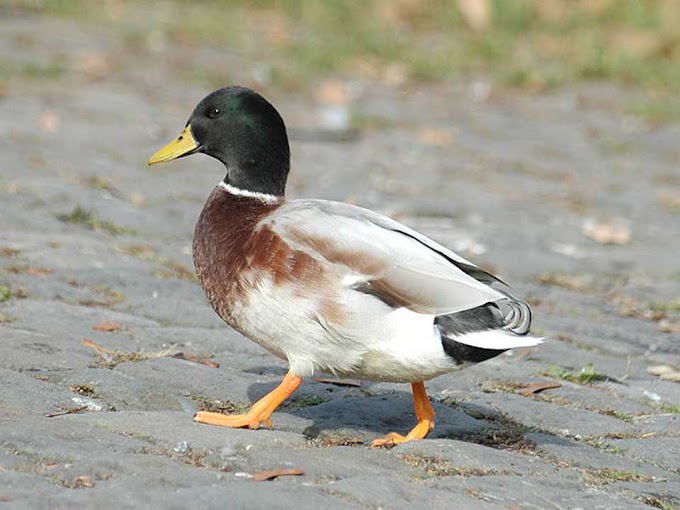Caique is a small and sturdy
parrot belongs to the species ‘Pionites’. The Caique has a short & squared
tail and very decent colors.
The Caiques are widespread in the
“Amazon Basin” in South America. The black-headed are found in the north of Amazon
River, whereas, the white-bellied are found in the southern regions. They usually
desire forested areas and survive on the fruits and seeds. The Caiques are commonly
canopy inhabitants, spending their more time on the trees, hunting, and
playing. The Caique’s wing-feathers make a unique whirring sound while flying.
The Caiques are very vocal.
Weight
The normal weight of a Caique is
around 150 to 170 grams.
Lifespan
The normal life expectancy of Caiques
is up to 40 years.
Behavior and Ecology
The Caiques are normally seen in the
tops of the trees and less growing forests. No less than two members of the crowd
act as guards while feeding. Their diet contains flowers, fruits, pulp, and different
seeds, while in imprisonment they are known to eat the insects. The Caiques can
breed from October to May at several times in a year. The Caiques are high nesting
cavity parrots and they perch jointly. They fight with other individuals if
they kept in packs or cartons.
The black-headed Caique is frequently
seen in the forest and adjacent forested homes in the Amazon north of “Amazon
River”, and west of the “Ucayali River” in Brazil, Colombia, French Guiana, Peru,
Suriname, and Venezuela. The black-headed Caique is very common and found in various
safe areas all over its range.
Caique Classification
Initially “Pionites” were categorized
into two species; black-headed and white-bellied parrots. But, new
morphological research has shown that white-bellied parrots should be divided
into three subspecies due to their plumage and leg coloring. Formerly, these
parrots were frequently associated with the ‘Conures' or other South American Parakeets.
Green-Thighed Parrot
Description. Green-thighed parrot is
typically 23 cm (9.1 inches) long with generally green & pink feet and
apricot-orange cap. They are solid parrots.
Region and Habitat. Green-thighed parrots
are usually found in the Amazon area of Brazil. They live in sea-level moist steamy
and seasonally underwater forests.
Yellow-Tailed Parrot
Description. The Yellow-tailed parrot
is typically 23 cm (9.1 inches) long. The breed is more similar to black-legged
parrot, however with yellow-tail and pink-feet.
Region and Habitat. The Yellow-tailed parrots
are usually found in the Amazon area of southern Brazil. They mostly desire to live
in sea-level moist steamy and seasonally underwater forests.
Black-Legged Parrot
Description. Black-legged parrot is
typically 23 cm (9.1 inches) long. They are more similar to green-thighed
parrot, however with yellow-thighed and blackish-feet.
Region and Habitat. The black-legged parrots
are found in most areas of Bolivia, Peru, and Brazil. They desire to live in
the seasonally underwater forests.
Black-headed Parrot
Description. The black-headed parrot
is typically 23 cm (9.1 inches) long generally with green & yellow thighs, hints
of orange color, blackish-feet, black-cap with a black-bill. They are medium-sized
chunky parrots.
Region and Habitat. The black-headed parrots
are usually found in most parts of Colombia, Venezuela, Guiana, Peru, and
Brazil. They mostly desire to live in sea-level moist steamy and seasonally underwater
forests.
Aviculture
 |
| Juvenile White-bellied Caique on back playing |
The Caique parrots are not
getting acceptance in aviculture. The most common breed is black-headed caique
since it was familiarized primary in the captivity. However, the acceptance and
reputation of white-bellied Caiques are also increasing rapidly. Well-trained Caiques
make a good relation with human beings. They have popularity as lively and
energetic parrots. They enjoy playing with the toys and lying on their backs.
These parrots occasionally show uncommon behavior with the avian species in because
they roll over on their backs in ostensive play which is often called ‘Wrestling’.
The Caiques are mostly not good flyers as they become tired and breathless
after only a short flight. The Caiques frequently desire to walk, jump, climb,
or flight as a means of transportation. They are exceptional hikers, with most
powerful feet and legs.
Breeding
In captivity, the Caiques are adept
of breeding under the age of 3 years. They usually lay a clutch of 4 eggs and the
incubation takes about 24 to 27 days. Maximum couples struggle to nurture all their
four chicks. The chicks are usually fed by both mother and father. They remain
in the nests for around 70 to 75 days. The parents are very loving to their descendants
and after the baby birds have fledged, they return to their nests every night
with the parents where all the family perch together.















1 Comments
Hi
ReplyDeleteHaving a cat pee all over the house can drive you crazy.
It stinks and creates unnecessary work to clean up the mess.
But what can you do to fix it?
Well, it appears you’ve only got two options.
1. Lock your cat up in one room during the day
2. Or get rid of it completely
I’m guessing you’d prefer to not have to do either of these…
True?
Well you don’t have to…
There’s now a solution that makes your cat ALWAYS pee in its litter box.
It’s called “Cat Spraying No More” and it’s been proven to work.
All you have to do is follow the step-by-step directions and you’re cat pee problems will vanish forever.
Plus, it comes with a 60-day money back guarantee, so there’s no risk.
Go check it out now…
>>>No More Cat Urine Everywhere<<<
>>>Use THIS and Your cat will ALWAYS pee in its Litter Box <<<
>>>No More Cat Pee Everywhere<<<
>>>Peace of Mind For A Messy Cat<<<
>>>Go here to find out more… <<<
Talk soon,
[Ana]